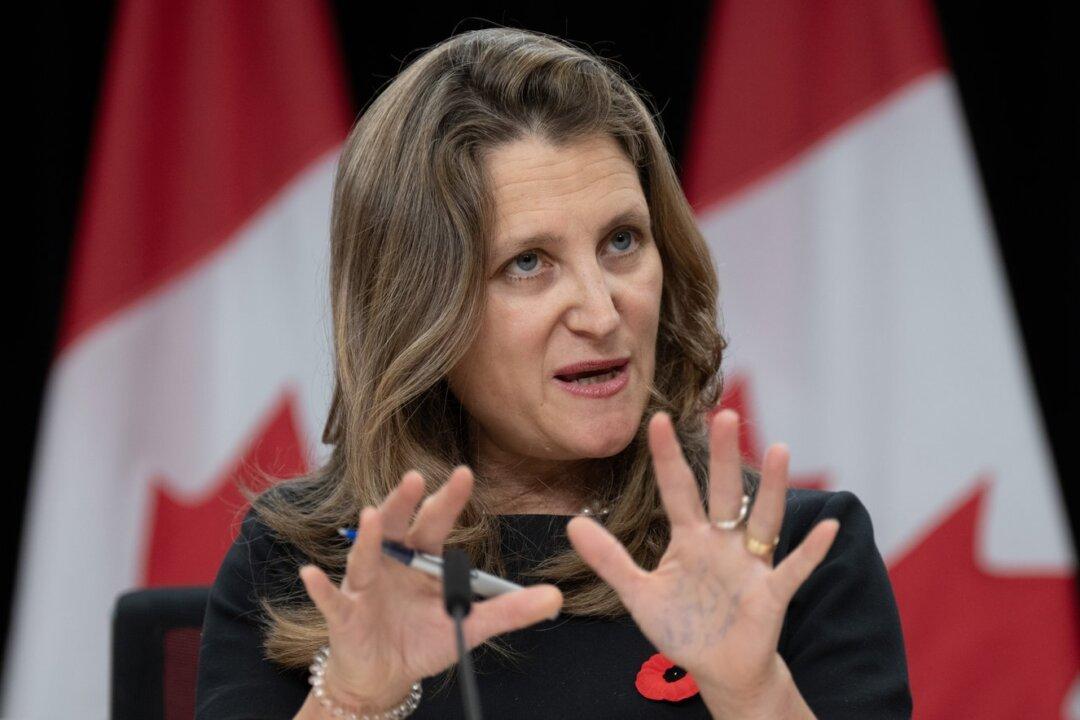Finance Minister Chrystia Freeland is handing a 10-year tax holiday worth $2.1 billion to electric auto battery manufacturers, government documents show.
Government amendments to Income Tax Act regulations grant the decade-long tax waiver to battery factories on top of the billions in subsidies they are already receiving.





